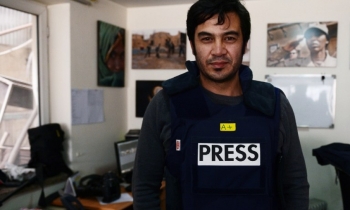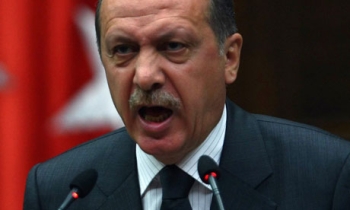International free speech organisations are mounting pressure on the Turkish government to respect press freedom and freedom of expression leading up to presidential and general elections scheduled for later this year.

Freedom House, an independent non-governmental organization that supports the expansion of freedom in the world, said earlier this week that the Kanal Turk TV station, perceived to be critical of the ruling Justice and Development (AK) Party, has reported attempts by officials to intimidate it into curtailing critical reporting.
Attempts at intimidation have included detailed investigations by the Ministry of Finance into the financial activities of Kanal Turk TV, including examinations of the tax records, bank accounts, and income flow of both managers and employees, as well as the personal expenses of family members of the management and guests who have appeared on the station’s programs. These and similar actions against other media outlets have prompted condemnation by both local and international organisations, including the head of the Turkish Press Council.
“Ensuring a free and open media environment is vital to any healthy democracy, and is particularly important in the months leading up to an election†said Jennifer Windsor, Freedom House’s Executive Director. “We hope that the Turkish government can demonstrate its ability to withstand public scrutiny by respecting all forms of free expression, even those that are critical.â€
“These subtle forms of intimidation have no place in a democratic society and are inconsistent with the positive steps that Turkey has taken in the past six years to improve its ratings in press freedom,†said Karin Karlekar, managing editor of Freedom House’s Freedom of the Press survey.
Freedom of the Press 2006, Freedom House’s most recent survey of press freedom, categorises Turkey’s media environment as Partly Free. Turkey’s current ranking of 103rd place out of a total of 194 countries and territories worldwide reflects a number of positive media reforms that have been passed in recent years in preparation for the membership in the European Union.

However, Turkish media continues to face a number of pressures, and legal threats to media freedom appear to be on the rise. Prosecutions of journalists, publishers, and activists under Article 301 of the penal code that criminalises insults to “Turkishness,†nearly doubled in 2006 from the previous year.
Hrant Dink, a Turkish-Armenian journalist and the founder of the Agos newspaper, who had been convicted under Article 301 for having “insulted Turkey’s national identity,†was assassinated by an extremist nationalist on January 19. Following his murder, numerous local and international groups joined together to renew calls for Article 301 to be amended or abolished altogether.
Last month, twentyone free expression groups said Article 301 must be repealed immediately. Article 301 makes the act of "humiliating the government and judicial organs of the state or the police or military structures" punishable by six months to three years in prison.
Bianet reports that 69 court cases were filed under Article 301 in the past year. Last year, Nobel Prize-winning writer Orhan Pamuk, faced charges under the provision but had his case thrown out by a judge following international pressure. In Turkey, a coalition called the Joint Platform on Human Rights has collected more than 20,000 signatures and endorsements from 100 non-governmental organisations calling for Article 301 to be repealed, according to Bianet.









